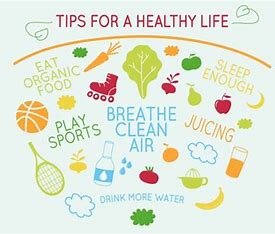As a busy professional, it can be challenging to maintain a healthy diet. However, making smart food choices can have significant benefits for your overall well-being, energy levels, and productivity. Here are some healthy eating tips tailored for busy professionals:

1. Plan Ahead
- Meal prep: Set aside time once a week to prepare and portion your meals. This will save you time during the week and ensure you have healthy options available.
- Batch cook: Prepare large portions of meals like soups, stews, salads, or grain bowls that can be quickly reheated.
- Use a meal delivery service: If you’re short on time, consider a healthy meal subscription that delivers pre-portioned meals.
2. Keep Healthy Snacks on Hand
- Smart snacking: Keep healthy snacks like nuts, seeds, protein bars, yogurt, fresh fruit, or veggies in your office or bag. Avoid the vending machine temptations.
- Portable protein: Pack small portions of lean protein like boiled eggs, turkey slices, or hummus with veggies.
3. Make Balanced Choices
- Follow the plate method: Aim for half your plate to be vegetables or fruits, a quarter protein (chicken, fish, beans), and a quarter whole grains (brown rice, quinoa, or whole wheat).
- Healthy fats: Include sources of healthy fats like avocados, nuts, olive oil, or fatty fish (salmon) for sustained energy.
- Limit processed foods: Choose whole foods and avoid heavily processed snacks or meals with excess sugar and refined carbs.
4. Stay Hydrated
- Drink water: Keep a water bottle at your desk to stay hydrated throughout the day. Aim for at least 8 cups of water a day.
- Herbal teas: When you need variety, opt for caffeine-free herbal teas or infused water for a refreshing change.
5. Use Smart Eating Habits
- Eat mindfully: Avoid eating in front of your computer or while multitasking. Take a few minutes to enjoy your meal and listen to your body’s hunger cues.
- Control portion sizes: Busy professionals often eat on the go or in large portions. Try to eat smaller, more frequent meals throughout the day to maintain energy levels.
6. Batch Cooking & One-Pot Meals
- Use simple recipes: Stick to recipes that require minimal prep time. One-pot meals like stir-fries, soups, or sheet-pan dinners are easy to prepare and clean up.
- Slow cookers or Instant Pots: These kitchen appliances can save time. Set them up in the morning, and you’ll have a hot meal ready when you get home.
7. Embrace Smart Convenience
- Frozen fruits and vegetables: These are nutritious, affordable, and last longer than fresh produce. They’re great for smoothies or quick stir-fries.
- Healthy convenience foods: Consider items like pre-chopped vegetables, microwavable brown rice, or pre-cooked chicken to save cooking time.
8. Limit Caffeine and Sugar
- Monitor caffeine intake: Excess caffeine can lead to energy crashes. Try to limit coffee to 1-2 cups per day and switch to green tea if you need a caffeine boost.
- Reduce sugar: Cut back on sugary snacks and drinks. Instead, satisfy sweet cravings with fruit or natural sweeteners like honey or maple syrup.
9. Meal Delivery and Takeout Tips
- Choose healthier takeout: When you have to order out, look for options like grilled or baked foods, salads, or dishes with lean proteins and vegetables.
- Skip the fried foods: Opt for dishes with roasted, steamed, or grilled components instead of fried.
10. Don’t Skip Meals
- Eat regularly: Skipping meals can lead to overeating later. Try to stick to a routine where you eat three balanced meals and one or two healthy snacks each day.
- Portable breakfast options: Prepare overnight oats, smoothies, or protein-packed breakfast muffins to take on the go.
* Conclusion *
Maintaining a healthy diet as a busy professional may seem challenging, but with thoughtful planning and smart choices, it’s entirely achievable. Prioritizing nutrient-dense foods, meal prepping, and staying hydrated can significantly enhance your energy levels, productivity, and overall well-being. Incorporating healthy snacks and practicing mindful eating can help you avoid the pitfalls of unhealthy eating habits.
